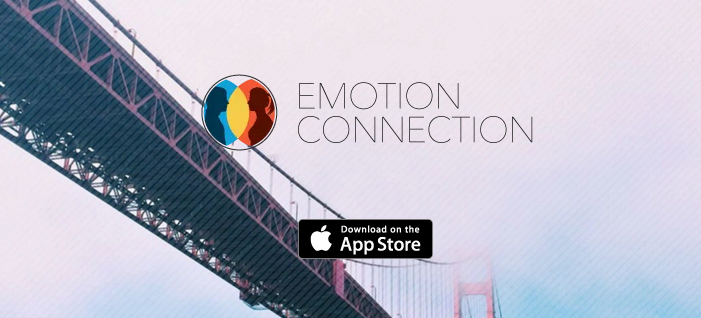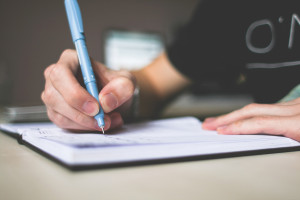Let me ask you this: Are you in tune with your emotional connection to others?
Odds are you struggle in this area, and you might not even have a clue what emotional intelligence means. But, you soon will.
I’m sure that most people live their entire life misunderstanding and being disconnected from the people closest to them because they lack emotional intelligence.
For example, when you don’t understand how to be emotionally intelligent, you might mistake someone’s anger for their sadness.
Would you react differently if you thought someone felt anger compared to sadness? Of course you would.
On the flip side, would they appreciate it if you understood their emotions and supported them through it? Most definitely.
But unfortunately this emotional disconnection goes on in every relationship you name across the board—friend and friend, parent and child, husband and wife, brother and sister, manager and employee—as people are having trouble relating to one another.
So what’s the big deal? Well I interviewed Dr. David Puder, the creator of the Emotion Connection app, to tell us about his app that addresses this issue and to discuss the importance of emotional intelligence. As the saying goes, there’s an app for that.
——
Brian: Tell me about the Emotion Connection app?
David: I created this app so people could have concrete ways to learn how to connect with each other. I made it like a game, rather than a bunch of text to study. It is a series of videos that I recorded, then cut into clips that capture real microexpressions.
A microexpression is a mini-moment of emotion on someone’s face; it may be as small as a twitch of the eyebrows and nose, but it can tell you so much about that other person’s emotional experience.
On the app, as you study the microexpression videos, you will be prompted to choose the emotion they are displaying from a list at the bottom of the screen. If you guess wrong, you get another guess. The app will then explain to you what facial expression you are seeing, how it looks on the face, and the corresponding emotion the person is feeling. It helps you be able to read people’s facial expressions and, in a way, enter their emotional experience.
Brian: How would this help someone have success?
David: When you are able to catch brief moments of emotion, you can better understand someone else’s experience. It can even help you understand yourself and the emotions you are having in your own body.
When we are unaware of our own experiences, we can tend to be unaware of other’s moment by moment emotions as well.
When I began to study microexpressions and emotional connection, and I realized how much microexpressions and understanding them is related to empathy, and how much empathy is important to connection, I realized how crucial it is to connect with what someone is feeling to develop deeper relationships. Studying this has even helped me in my marriage, in being a good father, and in being a good doctor.
Brian: Are you not busy enough as a psychiatrist, why spend your time to develop this?
David: I am busy, but emotional connection and developing better relationships is something that is important to me both personally and professionally. I know I can only see a certain amount of therapy patients in a day, and I can only lecture to or train so many psychiatrists in a year. I wanted to develop a way that others could have access to these lessons.
Having healthy relationships helps people. People I work with as patients, and even medical students and residents that I teach in my hospital, can improve their ability to relate to one another.
Some people think connection comes down to an introvert or extrovert basis, or they experience a pattern of being socially awkward, or continually have failed relationships. People think it is an ethereal thing that they cannot learn. The app, and my upcoming website, changes that stigma.
You can actually learn the science of emotion and how it feels in you, and how it relates to other people. You can learn how to see what is going on in someone’s facial expressions and their emotions, and you can relate to them on that basis. I wanted people to know that they can and will develop deeper relationships if they take the time to study this; connection is something you can learn.
Brian: Ok, so if I play this thing, and master it, what would be the next step?
David: For the app, I used the clearest examples of facial expressions I could find in all of the video research I did for this project. The app is important, and it will help you get ready for the next level.
The next level will be joining EmotionConnection.com, the website I am developing to help people further their ability to connect through training, workbooks, video teaching and journaling. I begin with lessons on emotions and what they are, how they feel in our own bodies and their original purposes.
For example, we think of anger as a bad emotion, and when we are growing up, maybe we weren’t given a place for expressing anger in our home. But when we study anger and it’s purpose, it actually has a good purpose. The training will teach you how to identify and process anger, how to know why you are feeling it and what to do with that emotion.
Once we have worked through that in ourselves, we can then identify it more easily in others and be able to connect with them through empathy, and develop a deeper relationship with them, even through the process of understanding anger.
Brian: Let’s say I don’t want to buy the app, but just assess my abilities, where would I go to test that?
David: I have a small free quiz on Emotion Connection. It is easy to take, and it should help you be able to decide if you need the app. Most people who start with no training make around a 30%. This is shocking. It means we are missing out on plenty of information someone is sending us, which we could be using to better understand them.
Not understanding microexpressions is like only hearing about every fifth word in a conversation; it actually stunts our ability to communicate.
On the full website I will have more than 300 videos, and those videos will be much more nuanced. So think of the free quiz as the easiest option, the app as a decent training ground and way to improve the emotional identification process, and the website as the way to really understand connection and even emotional health.
Brian: Thank you so much for your time, any last thoughts on this?
David: I’m happy to answer these questions; I love helping people learn connection.
Anyone can do this. You don’t need to be a psychiatrist or someone who deals with social anxieties to need this. If you want to see better, you get glasses. If you want to lose weight, you work out. There are direct correlations between being proactive and good results. Connecting in relationships is an area you can put time in, and you can get the results you’d like to see. This app and website are for everyone and it can get you measurably healthier relationships.
——
Since I know Dr. Puder and his excellent work, I bought the Emotion Connection app as soon as it went live. In my free time (which isn’t much in my daily schedule), I open the app to practice my emotional intelligence. Then I give what I learned a go as I analyze people’s facial expressions throughout my day.
And I believe that’s one of the beauties about learning this skill: I can practice looking for microexpressions everywhere I go. I practice at work, with my friends, and even as I try to solve the mystery murder in a movie.
Do I tell people when I’m analyzing their face? Not usually, but I do it nonetheless.
While some subjects you learn in school are irrelevant the rest of your life, understanding microexpressions can help you every single day. That’s true unless you plan to live on Mars by yourself, then practicing this is a complete waste of time!
On a serious note, can you afford to only scratch the surface in your relationships because you continue to misunderstand other people’s emotions?
I know I don’t want to.
How’s your emotional intelligence? How useful would it be to pick up on the microexpressions of your friends, family, and significant other? Is there anything you want to ask Dr. Puder?



